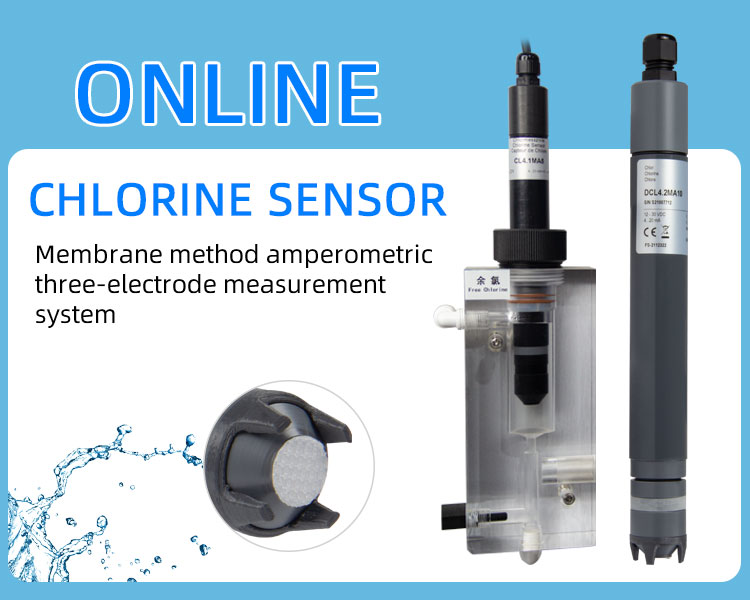Lead: As the infrastructure design begins to develop from reinforced concrete to steel structures, coatings are faced with new requirements, especially in the anti-corrosion protection life of coatings, coating performance of materials, seasonal versatility of materials, and environmental friendliness. Other aspects have proposed new topics.
Residual chlorine refers to the residual amount of chlorinating agents (such as chlorine, sodium hypochlorite, etc.) added in the water treatment process. Residual chlorine can play a role in sterilization and disinfection, but too high residual chlorine content will also have an impact on human health. Therefore, it is very important to monitor residual chlorine for drinking water, swimming pool water and other water bodies that need to maintain a certain residual chlorine content. The residual chlorine sensor adopts a membrane-covered amperometric system, which is accurate in measurement and can monitor the residual chlorine content in water in real time. The output mode has the choice of 4-20mA or RS485. The residual chlorine probe has a compact shape, and we provide a matching flow cell to make the measurement results more accurate. The membrane cover of the residual chlorine electrode can be replaced and has a long service life. We also provide many measuring ranges for customer to choose, 0~2ppm, 0~5ppm, 0~10ppm, 0~100ppm, 0~200ppm. Users can choose according to the water quality.
Chlorine Sensor,Chlorine Sensor Probe,Residual Chlorine Sensor,Water Chlorine Sensor Suzhou Delfino Environmental Technology Co., Ltd. , https://www.daruifuno.com
Anti-corrosion coating is a coating widely used by modern industry, transportation, energy, marine engineering and other departments. According to the degree of corrosion resistance of the paint film and the use requirements, it is usually divided into two types: conventional type and heavy anti-corrosion type. Conventional anti-corrosion coatings are used to prevent corrosion of metals, and protect the life of non-ferrous metals under normal conditions. Heavy anti-corrosion coatings are used in relatively harsh corrosive environments and have the ability to withstand conventional anti-corrosion coatings. A type of anticorrosive coating that achieves a longer protection period than conventional anticorrosive coatings.
The application fields of anti-corrosion coatings mainly include the following five aspects:
1 emerging marine projects: offshore facilities, coastal and bay structures, offshore oil drilling platforms;
2 modern transportation: highway guardrails, bridges, boats, containers, trains and railway facilities, automobiles, and airport facilities;
3 Energy industry: hydraulic equipment, water tanks, gas tanks, petroleum refining equipment, oil storage equipment (oil pipes, oil tanks), power transmission and transformation equipment, nuclear power, coal mines;
4 Large-scale industrial enterprises: papermaking equipment, medical equipment, food and chemical equipment, internal and external walls of metal containers, pipes of chemical industry, iron and steel plants, petrochemical plants, storage tanks, mine smelting, cement plant equipment, ground, walls, cement components with corrosive media;
5 municipal facilities: gas pipelines and their facilities (such as gas cabinets), natural gas pipelines, drinking water facilities, garbage disposal equipment, etc.;
6 Others: Shunyi sells various non-stick coatings for science and technology. 